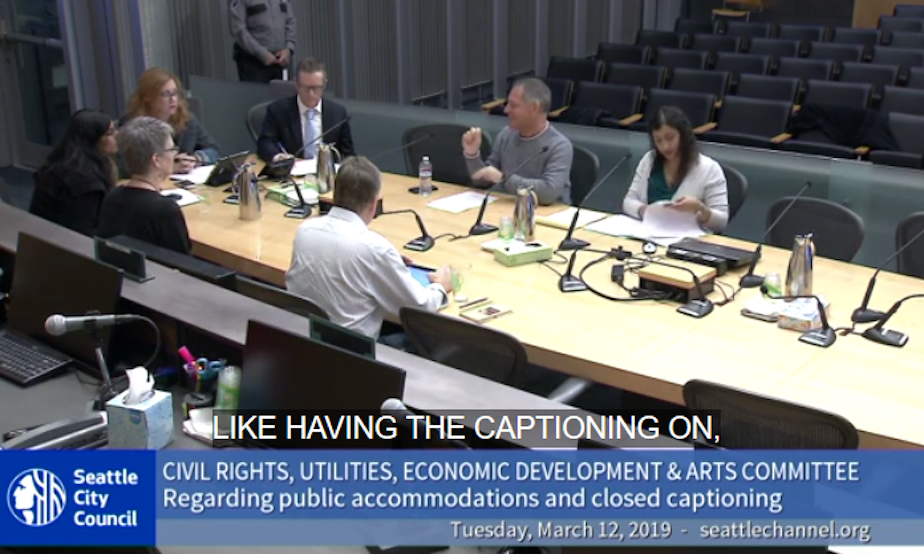Closed captioning may soon be required in Seattle bars, restaurants and other public places

Seattle City Council members are expected to discuss legislation Tuesday that would require closed captioning to be activated on all TVs in public spaces.
The proposed legislation would require closed captioning be turned on during business hours in a range of settings where TVs are present, including places like waiting rooms, restaurants and bars.
Businesses are currently required by law to turn on captions if asked. However, according to a summary of the bill, this legislation would shift the onus from a person with disabilities to a business with a television capable of closed captioning.
Eric Scheir is the co-chair of the Seattle Commission for People with disAbilities. He's deaf and he said this legislation would change life for him and many others if it’s passed.
"I would probably go out more often, actually, and support businesses more often,” Scheir said.
Scheir said requiring closed captioning would create equal access to information.
He said things like TV news alerts aren’t always accessible to people who are deaf or hard of hearing when they’re out in public.
Sponsored
“I don't necessarily know what's being conveyed. So access of information is critical to us as individuals who are deaf or hard of hearing," he said.
According to the bill summary, “closed captioning also benefits people with learning disabilities, sensory disabilities, attention deficits, and autism, as well as the elderly and persons learning English as a second language.”
Scheir said it also benefits the general public in settings that are loud, and can help people learn technical terms and names.
Outreach and education cost between $25,000 and $50,000 if the bill is passed. Enforcement would fall to the city’s Office for Civil Rights. An additional staff person may also be needed to manage the workload, depending on how compliance develops.




